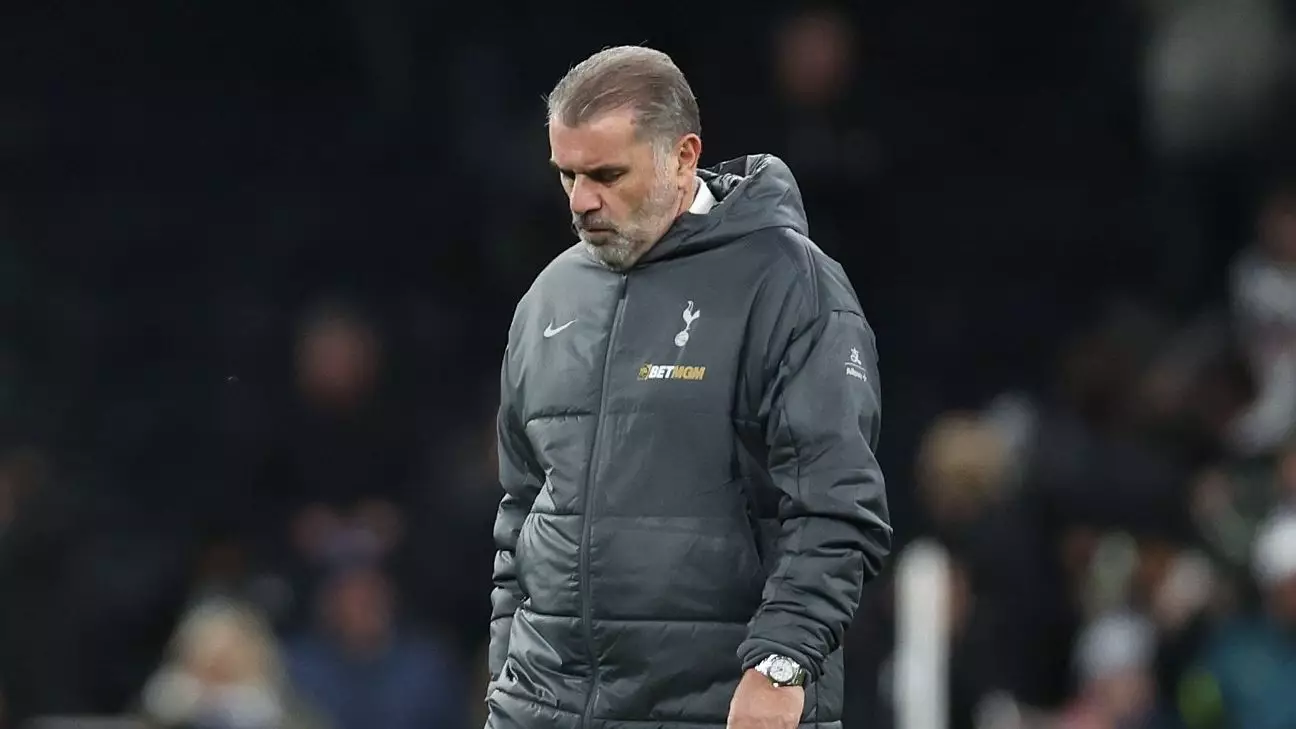In the wake of a disappointing 6-3 defeat to Premier League leaders Liverpool, Tottenham Hotspur’s manager Ange Postecoglou has firmly reiterated his commitment to an attacking football philosophy. Despite the scoreline that left fans and pundits alike reeling, Postecoglou maintains that his tactical approach isn’t merely a product of the external conditions—like injuries—but a foundational pillar meant to build a stronger future for the club. This insistence on attacking play indicates a broader vision that can either be perceived as naïve optimism or profound conviction, depending on one’s perspective regarding his leadership.
Postecoglou’s adherence to an aggressive style has been met with criticism, especially after watching his side concede 15 goals over the last six matches. The pressing questions directed at him reflect a common desire among supporters for immediate results, often at the expense of long-term strategies. It begs the question: can a manager who prioritizes a free-flowing attacking game survive when tangible results are lacking?
Critics of Postecoglou point to defensive frailty as a significant issue plaguing Spurs’ current season. The absence of key players like goalkeeper Guglielmo Vicario and defenders Micky van de Ven and Cristian Romero has certainly left a gaping hole in the team’s defensive unit. Perhaps more concerning is the fact that this aforementioned defensive collapse is closely correlated with the team’s grim form. In accordance with this, Postecoglou asserts that these injuries should not be overlooked in discussions about the team’s shortcomings.
However, his approach raises an important issue regarding the sustainability of an attacking ethos in conjunction with notable defensive deficiencies. The rampant goals conceded are not easily dismissed, posing a question for the Spurs hierarchy about whether such a strategy is tenable in the unforgiving landscape of the Premier League. Would a more balanced approach be more suitable as a means of preserving the team’s morale and competitive standing?
Fans and Press: Expectations vs. Reality
Postecoglou’s assertive response to critics suggests a dam breaking point. He has grown weary of navigating the repeated inquiries about his methods, signaling frustration at what he perceives as a lack of comprehension regarding his intentions. While fans and journalists clamored for quick fixes, the Spurs boss remained steadfast, emphasizing, “If people want me to change my approach, it’s not going to change.” This is telling; it signifies a clash between short-term expectations and the long-term project he seems determined to execute.
In addition, Postecoglou must reckon with the uncomfortable reality that the pressure is mounting. His steadfastness must evolve into results as even the most ardent supporters might struggle with lofty ideals if they are not married to achievements on the pitch. Managers in high-stakes football often rely on unwavering belief in their principles, yet there lies the inherent risk—persuading skeptical stakeholders that your vision will indeed manifest in success.
Moving beyond immediate results, Postecoglou’s strategy may serve to foster a sense of identity and culture at Tottenham, albeit at a cost. By prioritizing a vibrant attacking ethos, he presents a clarion call to players, fans, and pundits that winning isn’t solely about defense—it’s equally about entertainment and creativity. But the reality remains stark: results in the Premier League largely dictate opinion and can make or break careers.
While his methods are securing a loyal subset of supporters, they risk isolation as losses accumulate. If Tottenham’s boardroom sees this trend as irreparable, they might consider alternative paths. Meanwhile, the pressure systematizes the necessity for an outcome-oriented mindset. How long can Postecoglou’s philosophy stay afloat amid a sea of skepticism?
Ultimately, Postecoglou’s steadfast commitment to his vision encapsulates the challenging balance between principle and pragmatism that is so crucial in high-level professional football. The question remains whether this will lead to success, or if it will mark the beginning of the end of his tenure as he seeks to carve out Tottenham’s place in a fiercely competitive landscape.

